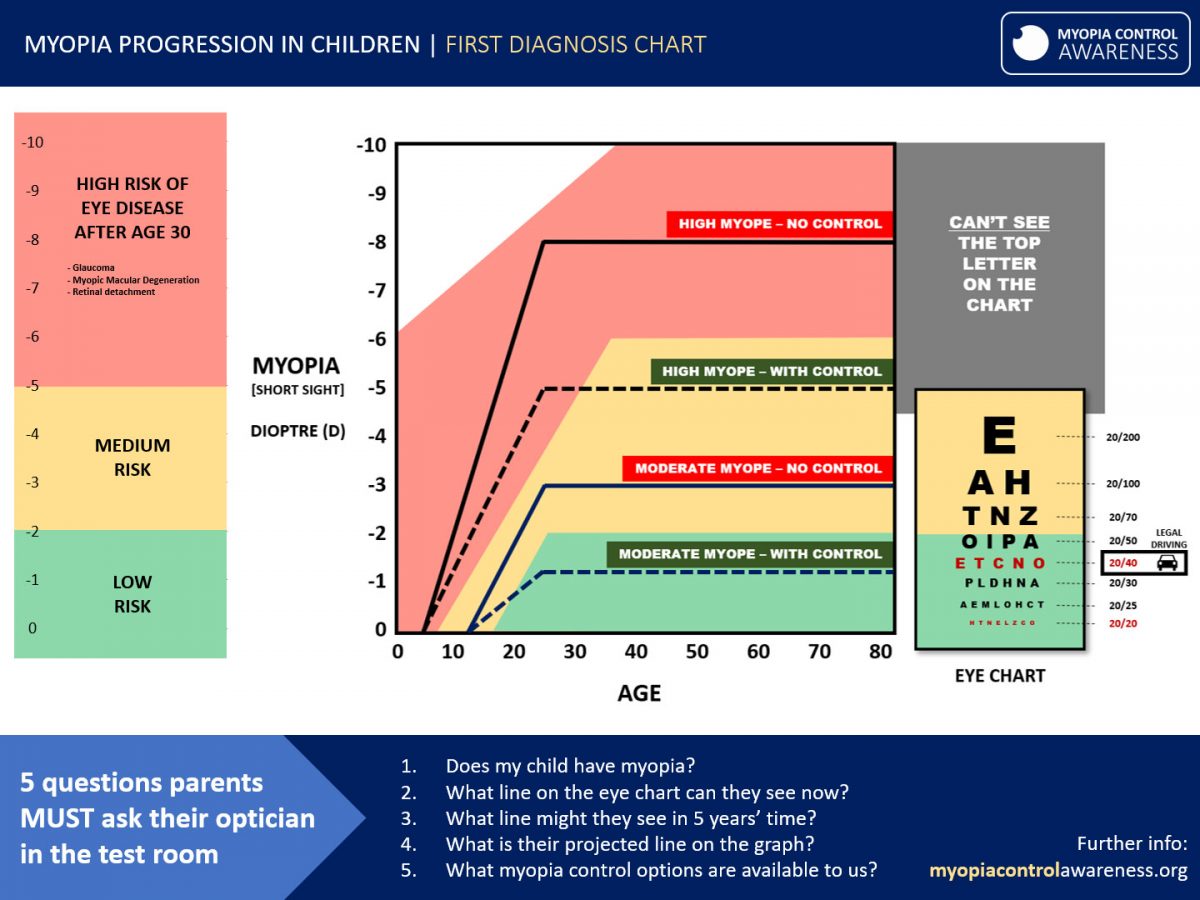Long Term Eye Health
Myopia leads to the eye elongating, making the retina more susceptible to degeneration. If we liken the eye to a camera, the retina acts like the film, capturing what we see. Damaging the retina can lead to permanent sight loss that cannot be corrected with spectacles or surgery. In the worst-case scenario, it may result in partial sight or blindness.
The good news is that the amount of Myopia can now be reduced in children. The chart below illustrates how EARLY CONTROL can help your child achieve better vision over their lifetime, reducing their risk of eye disease later in life.

TRAFFIC LIGHTS & YOUR CHILD
(on the chart above)
RED – High myopia. Vital to get early control
AMBER – Moderate myopia. Green zone possible
GREEN – This is where we’re aiming for
AN ‘EYE TEST’ ASSESSES THE HEALTH OF THE EYE
Eye tests are not merely a ‘test for glasses’; they are crucial for assessing eye health. Since our children are projected to live until they are 90+, it’s vital to prioritize the longevity of their eyes! The RED ZONE indicates poorer eye health, and as they age, they may encounter difficulties seeing the top line of the chart without correction, face challenges in driving, and have a higher risk of eye diseases. Taking early action to maintain their vision in the GREEN or AMBER zones will significantly benefit them later in life.
Every Dioptre matters.
Addressing low myopia now leads to better outcomes in the future.
